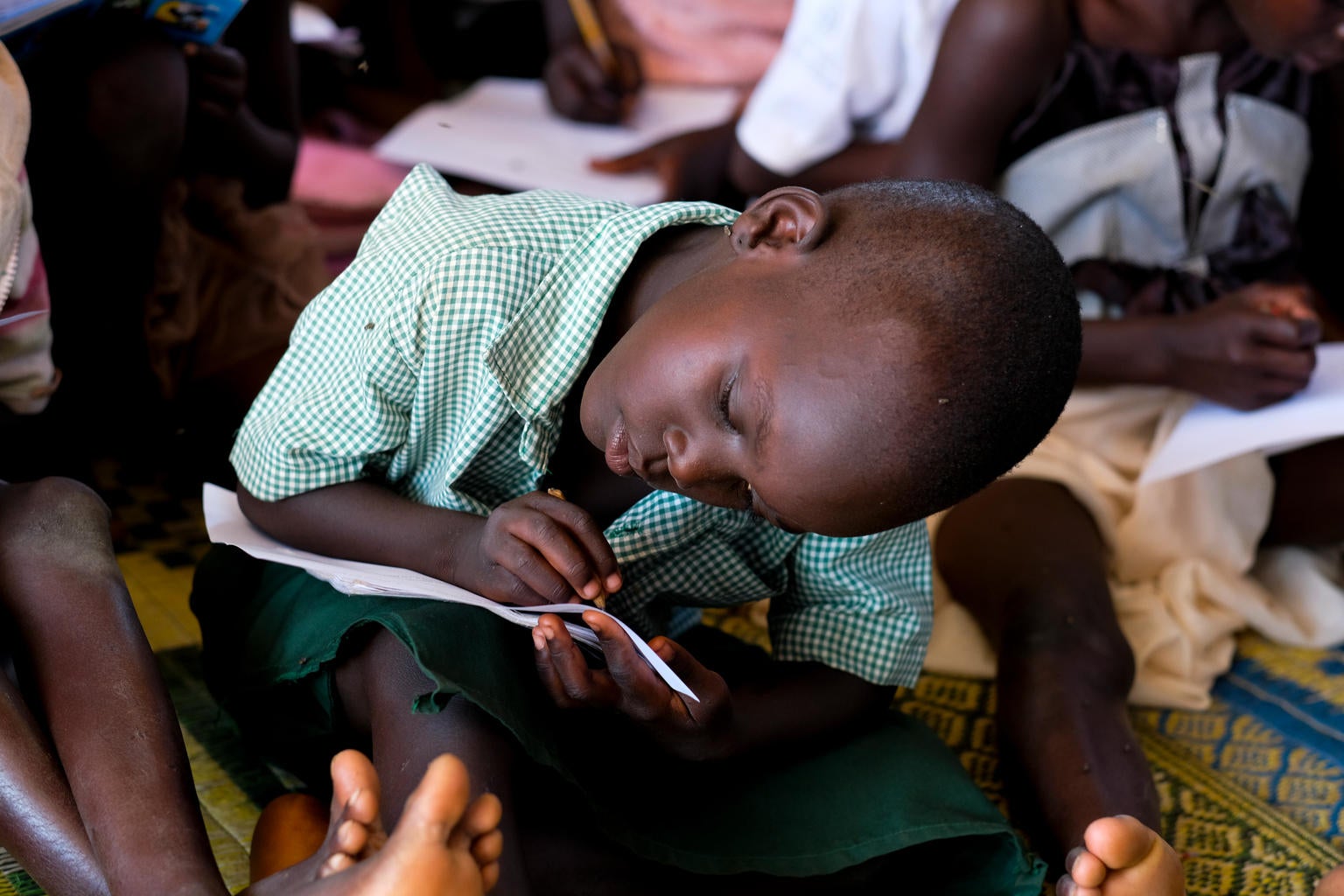Wooden pole stumps are all that is left of Ogweni Primary School.
The UNICEF-supported school was once a large institution educating over 500 kids in Wau Shilluk, a corner of north-eastern South Sudan. Now, there's almost nothing left.
“I remember the day the school opened. The school was nice, accommodating learning. The whole community felt this was a real school," says James, a previous teacher who worked at Ogweni Primary.
"The school was one of a kind, we had never seen this design before"
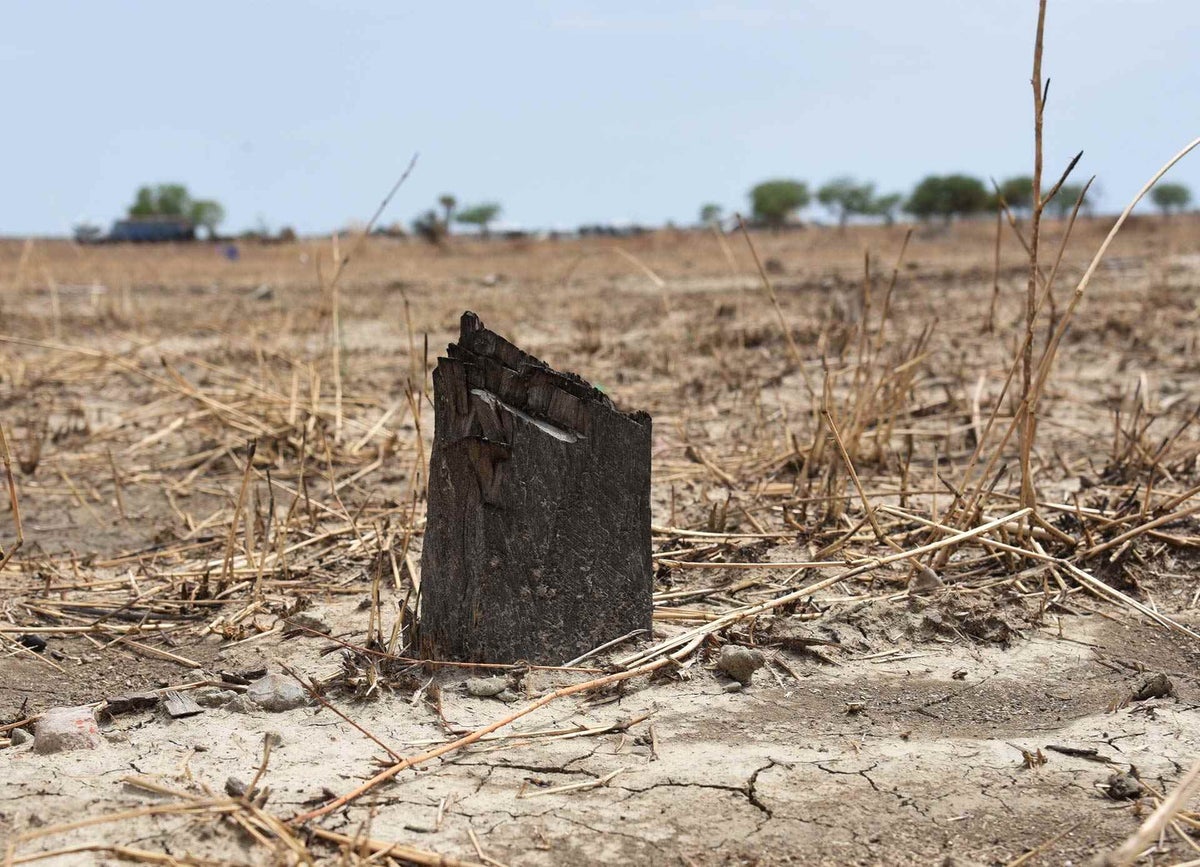
The South Sudanese civil war has plagued the region since 2013. Almost as soon as the school opened, trouble in the area came to a boiling point. Soldiers moved in, buildings in the area went up in flames, the people of Wau Shilluk were forced to flee. “I remember the shooting started at 4 pm. Heavy shelling, then the infantry came. We had to flee; the soldiers were coming. The school was in perfect condition when I left.” As one of the only buildings that didn’t burn down at once, the school was occupied then later demolished by soldiers.
Where the once-great school stood, there is now nothing but wooden stumps, marking what was lost in the conflict. Sunday, 15, a student from Ogweni was one of the people who had to flee "home we had a garden and fish from the river, but we had to leave everything because of guns. To go back, we need peace."
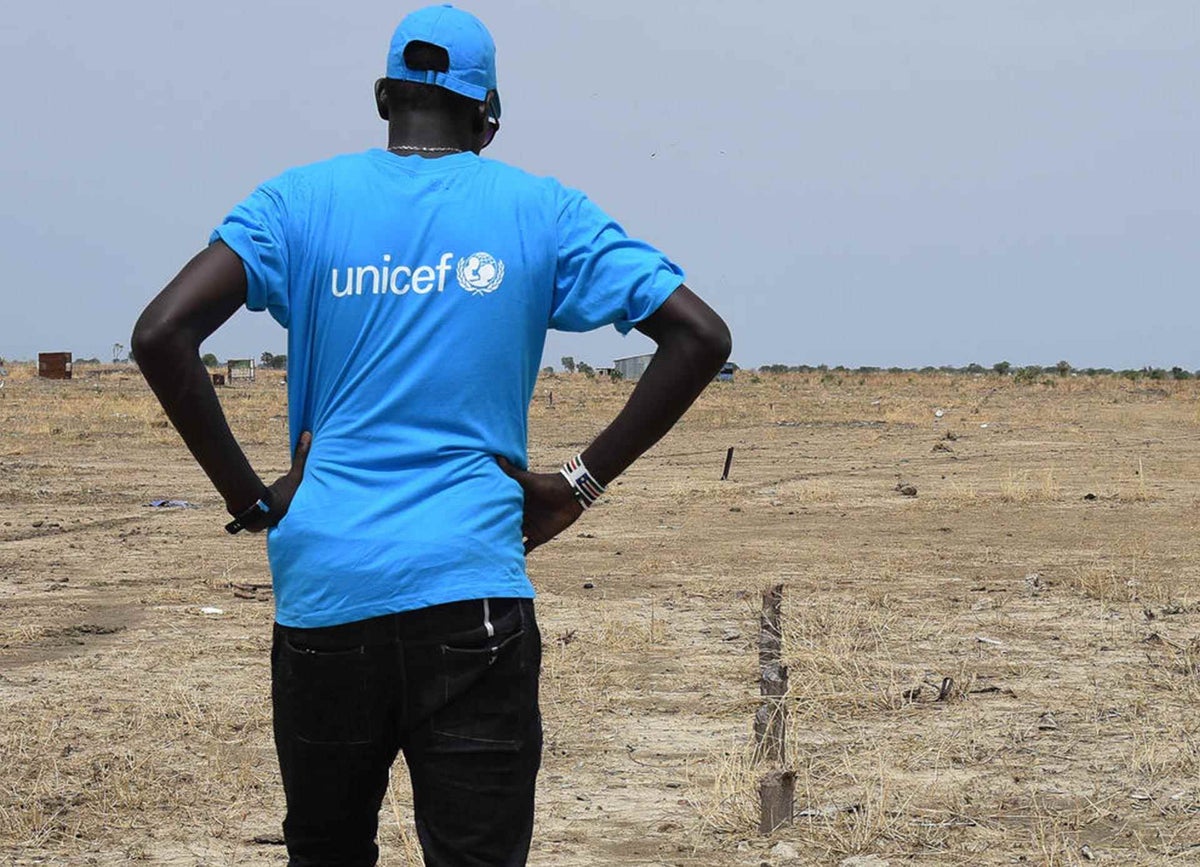
“The school made me enjoy teaching more… that is my life” says James. James used to teach mathematics for primary 4, 5 and 6. For a teacher as passionate as him, seeing his beloved workplace gone is devastating, “I was back in Wau Shilluk last week, and I saw the school, or what was left of it. It is really bad. It pains me to see that nothing is left”.
Once peace is achieved in the region, the people of Wau Shilluk will be able to move back to the neighbourhood they called home. The homes, businesses and schools that were destroyed can begin to be rebuilt. Until then, a solution for the 500 children that were left without a school must be found.
"If the school is destroyed you miss your studies and you cannot become what you want to become"
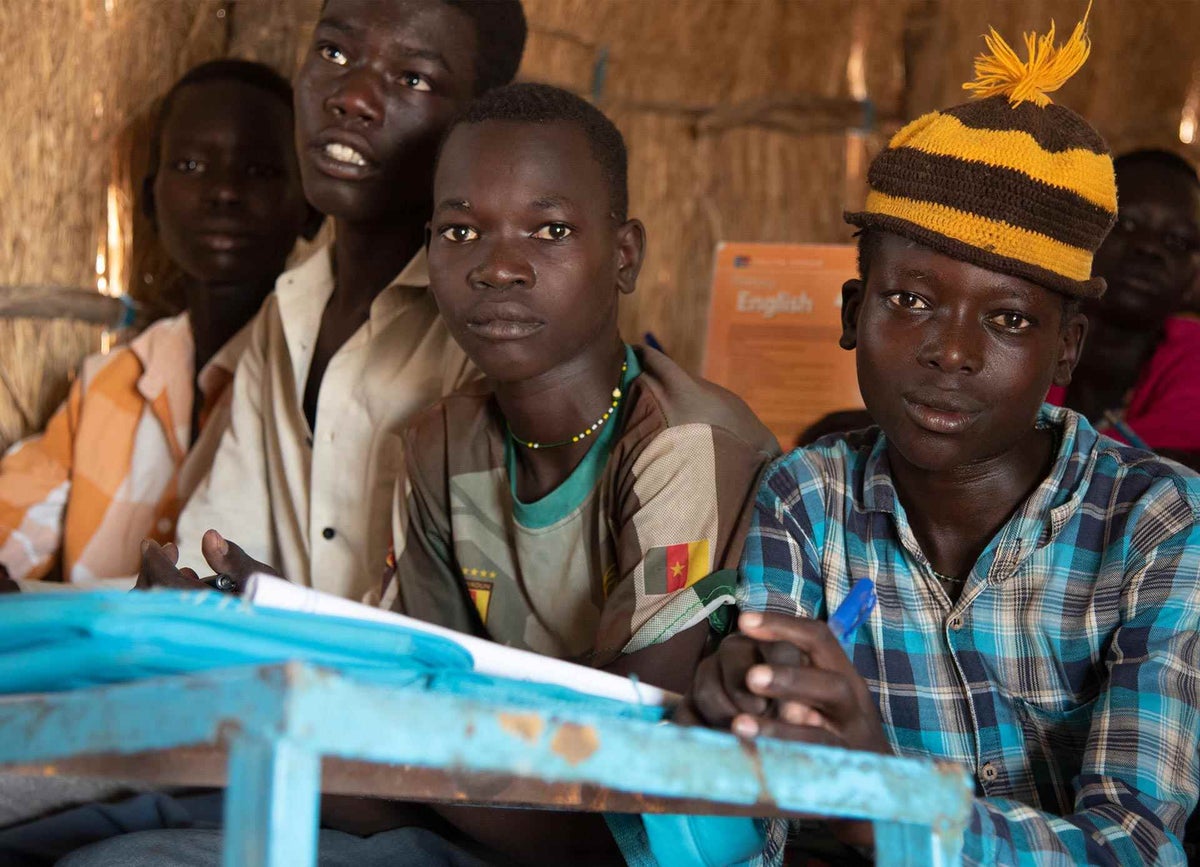
When an area is ravaged by conflict, support must be given to displaced children. This support includes emergency education. In South Sudan, approximately one in three schools have been damaged or destroyed; leading to 1.8 million children who are out of school.
To combat this, UNICEF is providing temporary learning spaces as part of the Education in Emergencies project. Teachers trained by UNICEF are providing education to students who were previously displaced; the program also provides students with educational materials such as books, bags and pens.
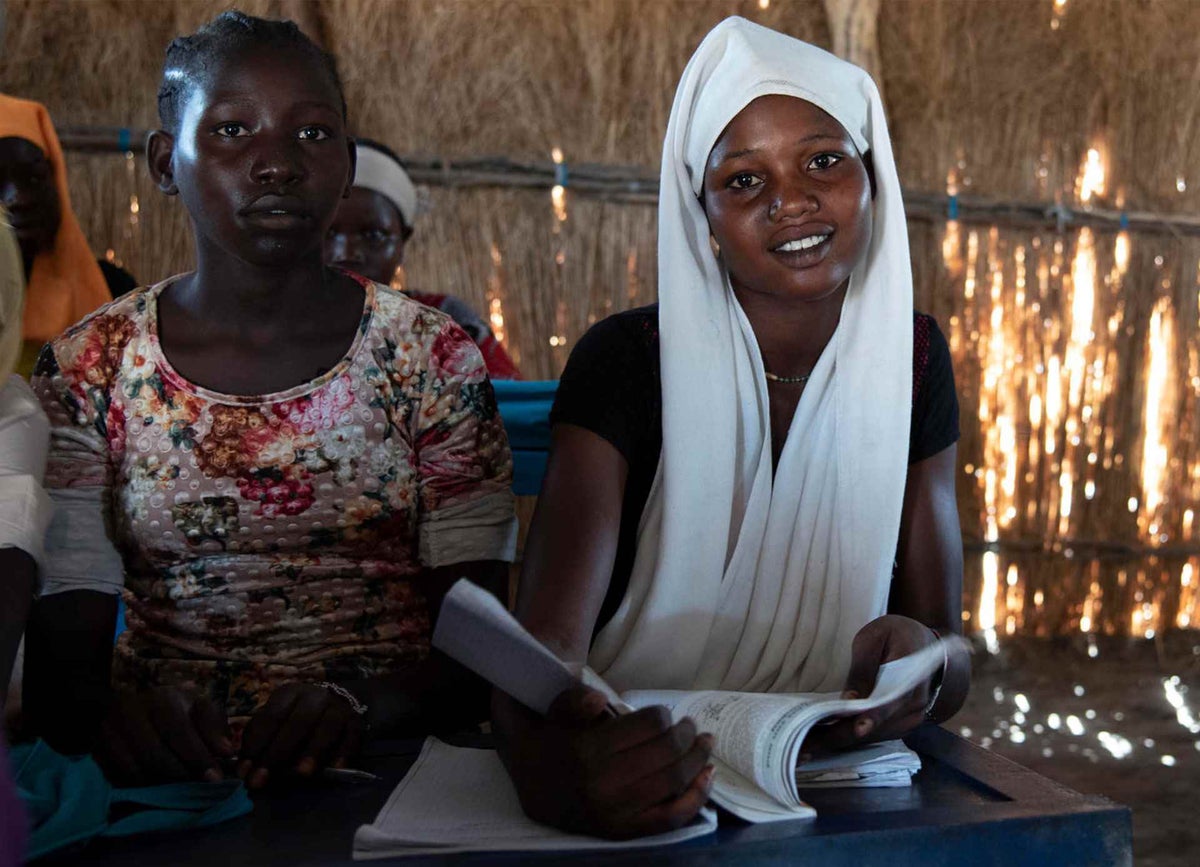
The children of Ogweni have been transferred to a primary school in Abrouc to continue their education. They are optimistic about their future, not only for their education but for peace in the area.
Abraham, a 14-year-old who was in primary 2 when his school was destroyed, discussed his plans to become minister of education. “If I was the minister for one day, I would do something about the teacher’s salaries, so they can teach well.”
Related articles
Stay up-to-date on UNICEF's work in Australia and around the world



